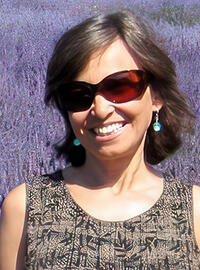An Essay on Finding Truth
An Essay on Finding Truth
Editor’s Note: Nancy Votrain and her husband, Douglas Parker, are longtime residents of Corvallis, Oregon, and have been students of The Urantia Book for more than 45 years. This article originally appeared in the weekly “Interfaith Focus” column in the Corvallis Gazette-Times. We were so impressed with Nancy’s portrayal of the book that we wanted to share it with all of you.
While religion is a matter of personal experience, we can derive much from becoming familiar with many religious and spiritual paths. All faiths contain truth, and we benefit from studying and assimilating those truths.
As a young child, I began a personal relationship with a loving God that was palpable to me. However, I had many questions and yearned to know more about all things divine. In my early 20s I found The Urantia Book, a spiritual guide for navigating life, unified by science, religion, and philosophy, rooted in history, clarified by facts, and illuminated by spiritual wisdom.
Although The Urantia Book itself is not a religion, it defines true religion as a matter of personal spiritual experience. Each one of us is personally and intimately in an authentic, experiential relationship with our own individual fragment of the Source of All. But because we are all unique it is inevitable that no two human beings can interpret the leadings of the divine spirit in exactly the same way.
The indwelling divine presence gives origin to our human desire to serve humankind, each a member of one worldwide family. It is this divine gift that creates that unquenchable thirst to be our best selves! This beloved partner is our infallible cosmic compass, always available to help us make the highest moral decisions. The religion of the spirit, personal spiritual experience, draws us together and causes us to become increasingly more understanding and sympathetic with one another.
It is the experience of traversing the rocky landscape of life that pushes us to actively use our mind and soul to determine the moral choice of the highest possible value. When our mind freely chooses the most ethical resolution, such a decision will become a religious experience.
New religious insights arise out of conflicts. Conflict acts as a stimulus to growth and initiates the possibility for choosing new and better reaction habits. We become courageous when we face something difficult or deal with disappointment. The seeds of empathy germinate and grow when we personally recognize social inequality and make the decision to take a stand. When we find ourselves in predicaments where we know less than we can believe, we learn the value of faith.
There are numerous examples in Corvallis where conflict led to solutions that benefit the good of the whole. For example, the United Church of Christ exemplifies courage, empathy, and faith by taking action and creating a safe camp for those without homes. The West Hills neighborhood, including the residents of Safe Camp, confronted with insecurity and uncertainty, value trust, and hope in the systems that are in place to keep everyone safe. The Interfaith Climate Justice Committee represents truth, idealism, and loyalty by leading our community to make much-needed changes on behalf of the environment.
We appreciate the value of truth when we experience error and dishonesty. We come to embrace idealism when we experience the irrepressible desire to do better. We learn to cherish the value of loyalty when we experience deception or betrayal.
This article reflects my interpretations of The Urantia Book as well as my own personal opinions and spiritual experience.
